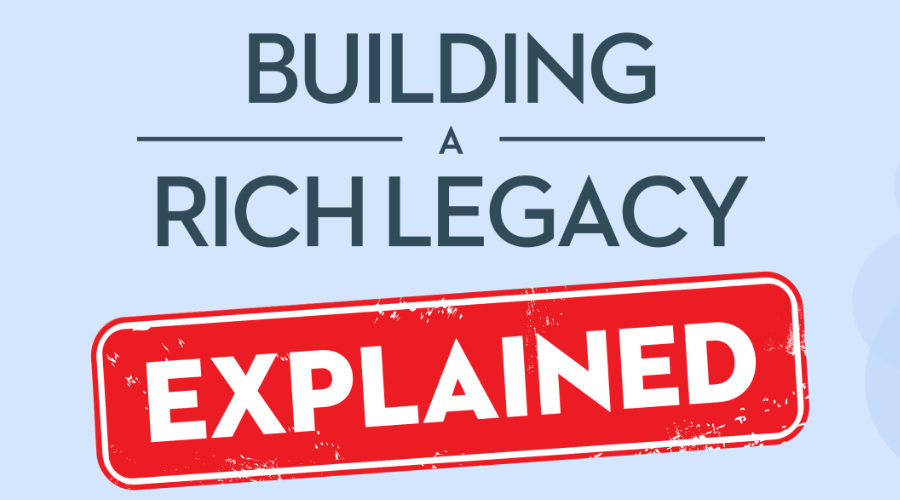Many Canadian homeowners are reaching retirement with zero or insufficient savings to help them live a comfortable retirement. So what options do they have?
Using their home equity for retirement income can be the perfect solution for these Canadians to help them make up that shortfall and enjoy a financially secure retirement.
Are You Prepared for Retirement Financially?
Preparing for retirement is no easy task. While most of us look forward to the freedom it brings, a surprising number of us aren’t prepared financially. A national survey of Canadian pre-retirees found that 56% don’t have a plan for retirement savings. Even among those that do have a plan, almost a third feel that they’re falling behind.
Not surprisingly, this lack of preparation has led to some anxiety over retirement. As many as 40% of people believe that they will be worse off in retirement, while 42% are worried that they’ll run out of money.
How can you tell if you’re prepared for retirement financially? Read on to find out!
Are your current retirement plans sufficient?
According to Stats Canada, just over a third of Canadians have a workplace pension plan. If you’re one of the lucky ones, your pension might be enough to maintain your standard of living after you retire.
But what about the rest of us? We need to provide for ourselves, with some help from the government. When preparing for retirement financially, many people hope that their government pension will be enough. However, unless you don’t mind being extremely frugal in retirement, that isn’t usually the case.

What you can expect to receive from the government
When preparing for retirement financially, you should consider the three main government retirement income sources: the Canada Pension Plan (CPP), Old Age Security (OAS) and the Guaranteed Income Supplement (GIS).
The maximum you can get from CPP for 2020 is $1,175.83. However, the amount you receive will depend on your average earnings while you worked, how much you contributed to the plan and when you start collecting it. The average CPP monthly amount is only $735.21.
The maximum OAS monthly payment is $613.53, but if you’ve lived in Canada for less than 40 years since turning 18, that amount is reduced by 1/40 for every year below 40.
GIS is only available to people with income below $18,600 (for a single person). The maximum is $916.38 per month, if you’re single and OAS and GIS could be your only income sources (with no CPP or private/RRSP retirement income). You also need to be receiving the full OAS payment to receive the maximum GIS amount.
Depending on your personal circumstances, you may only qualify for as little as $18,600 from the government. You can find out how much you’ll receive by going to your My Service Canada Account.
Financial planning for retirement: how much extra will you need?
When it comes to financial planning for retirement in Canada, most experts believe you need between 50-70% of your pre-retirement income to maintain your standard of living. The exact amount depends on if you still have a conventional mortgage and/or other debts (like credit cards) when you retire.
Let’s say you and your spouse combined earned $100,000 while working. You’ve got no conventional mortgage but some debts, so you believe you can live comfortably on $60,000. If you both qualify for $18,600 from CPP and OAS, ($37,200 in total), you’ll unfortunately have a shortfall of $22,800.
To work out roughly how much you’ll need in savings to cover that shortfall, financial planners typically allow for 4% of your total savings per year, as a retirement drawdown. To make up a shortfall of $22,800, you would need savings of $570,000.
Prepare for retirement financially by making up the shortfall
Financial planning for retirement in Canada is something you need to start as soon as possible. The longer you save — and benefit from compound interest — the better your chances of having enough money to make up that shortfall.
Taking advantage of Tax-Free Savings Accounts (TFSAs) and Registered Retirement Savings Plans (RRSPs) can help you to grow your money faster. TFSAs allow your investments to grow tax-free. RRSP contributions are tax-deductible, which frees up more money for you to save, plus you don’t pay any tax on their growth until you make a withdrawal.
When you start preparing for retirement financially, a qualified financial planner is essential. They will be able to work out how much you’ll need to save to reach your goal. Ask your friends for a recommendation.
Using home equity for retirement income
Preparing for retirement financially can be difficult, especially if you start saving later in life. In fact, saving any money at all can be difficult for some people: almost a third of Canadians approaching retirement have no savings whatsoever.
For homeowners reaching retirement with zero or insufficient savings, using home equity for retirement income can help make up that shortfall. The problem for some homeowners preparing for retirement is that certain home equity loans are beyond their reach.
Many retirees might not qualify for a regular home equity loan or home equity line of credit (HELOC) because of their low income or poor credit rating. Even those that do qualify could find that the monthly repayments make too big of a dent in their retirement income.
This is why the CHIP Reverse Mortgage® can be the perfect solution for Canadian Homeowners. Unlike regular home equity loans, income is not a factor in qualifying for a reverse mortgage. Also, because you don’t have to pay what you owe until you decide to sell, it doesn’t have a negative effect on your retirement income.
Another plus side is that you can receive the money in either one larger lumpsum or spread out into regular deposits, so it acts like extra income. The choice is yours!
Call us today at 1-866-522-2447 to find out how much you could borrow and how the CHIP Reverse Mortgage could help you in preparing for retirement financially.































